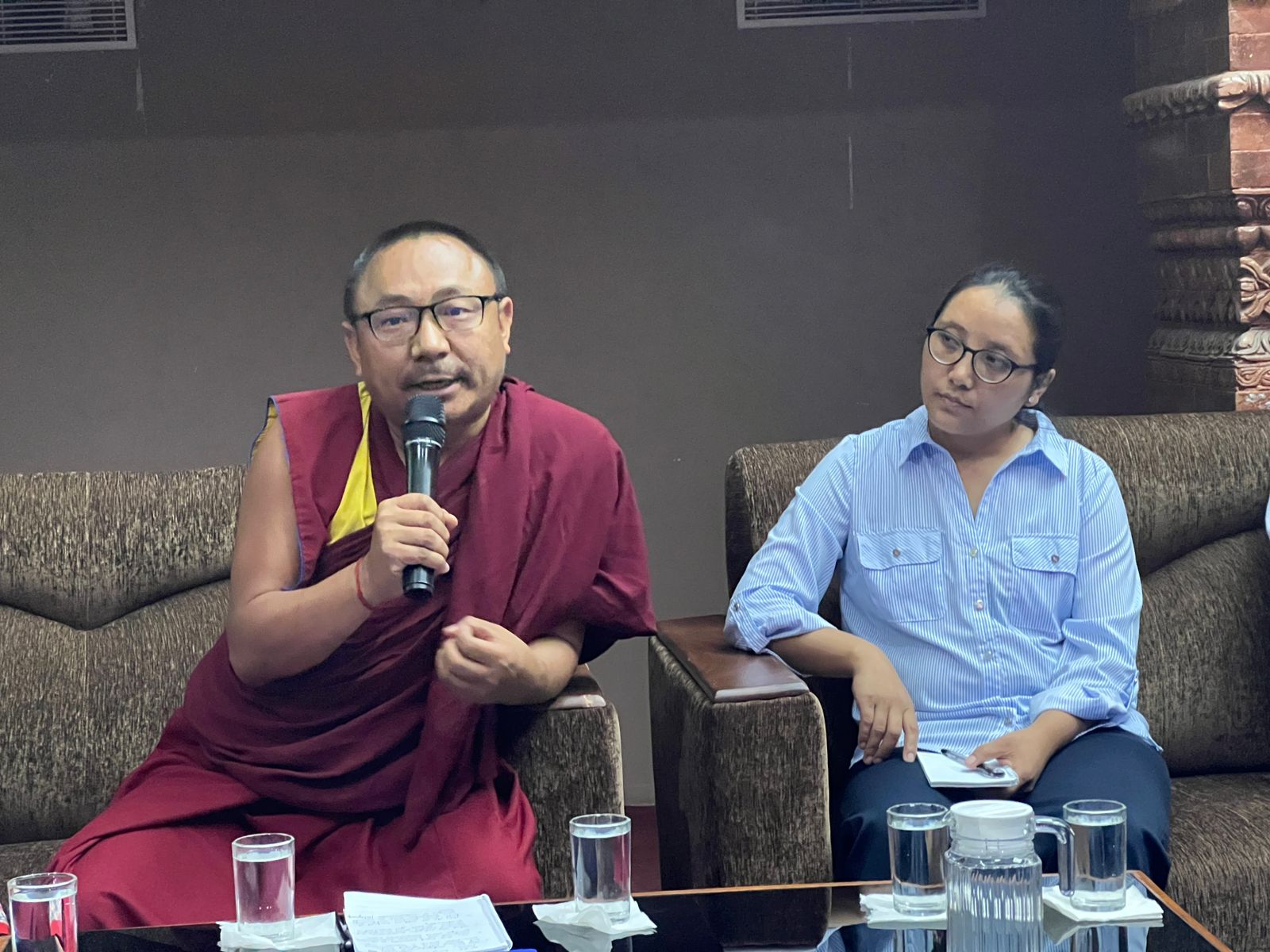The "UNITED FOR MOUNTAINS" conference highlighted community-led conservation, indigenous knowledge, and holistic approaches for snow leopard ecosystem protection and mountain community well-being.

June 13, 2025
Kathmandu, Nepal

A panelist speaks while another listens during a session on “Finding Common Grounds for Conservation,” held on June 13, 2025, in Kathmandu, Nepal. The discussion highlighted collaborative strategies for environmental and biodiversity conservation.
Photo: DevPulse/ Sakshyam Bhandari
The "UNITED FOR MOUNTAINS" conference held today at Nepal Academy of Science and Technology (NAST) hall discussed and called out on everyone highlighting how important it is for all to work together to save snow leopards.
The main idea was simple: "Nature conservation - responsibility of all and can only happen with everyone doing their bit; together possible." The goal of the conference organized by the World Wide Fund for Nature (WWF) Nepal was to bring together a diverse group of people to protect snow leopards and support mountain communities.
Sheren Shrestha, Project Lead of Snow Leopard Conservation at WWF Nepal, stressed the importance of increasing awareness, access, and ownership of mountain conservation and habitat conservation of snow leopards among even the common people.
Among the two panel discussions held, the one titled "Solutions for Mountain Biodiversity Conservation", made it very clear: everyone needs to work with mountain communities and local people first. Experts said that we can't truly protect nature without the help of the people who live there. They pushed for local people to be in charge of conservation plans, rather than just having things told to them.

Geshe Nurbu Thundu Sherpa speaks into a microphone next to Ms. Yangzi Doma Sherpa during a conference.
Photo: DevPulse/ Sakshyam Bhandari
Important issues like conflicts from more forests, problems between humans and wild animals (including snow leopards), and how to help people in the Himalayas live well were discussed. The conference also talked about how the news reports on these issues. They said reporters need to give true, full stories, not just focus on bad news, and should get training to do a better job.
A special talk by Amchi Tenzing Dharke highlighted Sowa Rigpa, an old type of medicine linked to Buddhism. It's used in over 40 countries and is all about how people and nature can be healthy together. This showed that stopping animal poaching and listening to what local people know are key steps for a good future for mountain areas and the people who call them home.

By sharing valuable information and sparking inspiration, we aim to foster growth, innovation and brighter opportunities for future generations.
Contact us